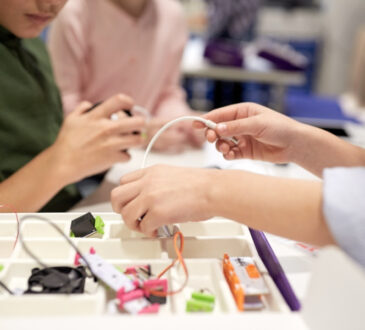
Neurodivergent is a nonmedical term for persons whose brains develop or function differently for unknown reasons. This means that the person’s skills and weaknesses differ from those of persons whose brains develop or work more normally.
While some neurodivergent people have medical disorders, it also happens to those who do not have a medical disease or diagnosis.
Is it a disability?
Some neurodivergent people suffer because systems or processes do not allow them to demonstrate their talents or generate new or more difficult obstacles for them.
Let’s take this example here, many neurodivergent people struggle in social circumstances, which can make it difficult for them to get jobs because they struggle during job interviews.
However, if the hiring procedure emphasizes their strengths, such as screening potential workers with a skills test, they can still get the job. Once on the job, their attention to detail makes them an excellent accountant or record-keeper since they can easily digest data that others may find boring.
Noisy situations can be overwhelming for neurodivergent people, but noise-canceling headphones can give them the peace and quiet they need to focus on their work.
Accommodations support people in overcoming obstacles such as disability acceptance and achievement. As in the above examples hiring processes and headphones aid neurodivergent persons by offering instruments for success.
Is it possible to avoid, treat, or cure neurodivergence?
The unique way that each person’s brain develops is referred to as neurodiversity. That is, it cannot be prevented, treated, or cured.
Some of the disorders that produce neurodivergence are treatable. There are numerous management strategies, therapy programs, and other resources available.
For certain people, such as those suffering from ADHD, behavioral treatment plus medication can improve their quality of life. For others, therapeutic programs might teach you how to play to your abilities, or how to make the most of your ability. They can also teach you how to adjust to your issues to minimize their influence on your life.
Parenting through neurodiversity
It can be exhausting to parent a neurodivergent child. The stress, concern, and never-ending lists of extra things to keep track of and manage can seem interminable. There often seems to be no spare time to accomplish anything other than remain on constant alert for what is coming or might come.
It is difficult for individuals who have never parented a neurodivergent child to comprehend how complex, sad, and stressful it may be to have your child continuously provoked, flaring up in ways that are beyond the child’s control and your capacity to resolve.
How can you support your child or loved ones with Neurodiversity
There are numerous things that people can do to support neurodivergent individuals. Some of the most critical considerations are as follows:
- Listen
Neurodivergent people may feel misunderstood or excluded. Be ready to listen to them. Tell them you hear them and accept their decisions.
- Engage in ways that will benefit them
Neurodivergent people may prefer written interactions such as texting, or emails to a phone call or face-to-face chat. Allow them the time and resources they require to communicate.
- Labels based on value should be avoided
Experts advise against using phrases such as “high-functioning” and “low-functioning” to describe diseases such as autism. They frequently make assumptions about a person’s level of function based on how much they behave like a neurotypical.
- There are no two neurodivergent people alike
Neurodivergent people’s personalities and preferences might differ greatly, even if they have the same underlying illness.
- Make no assumptions about anyone’s ability or intelligence
Neurodivergent people frequently have symptoms or preferences that make them distinguish out or appear unusual.
- Treat with dignity
You can normalize and accommodate individuals in a way that respects their human dignity.
At Last
Being neurodivergent refers to having a brain that functions differently than the average or neurotypical person’s brain. This could be due to differences in social preferences, learning styles, communication styles, and/or environmental perceptions.
As a result, a neurologically diverse person has distinct challenges and capabilities. Neurodivergent people can benefit from schooling and programs that help them develop their abilities and use them to live happy, healthy lives.




